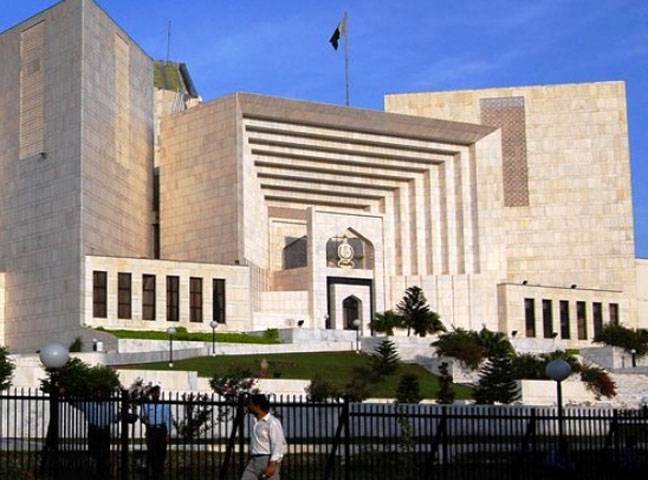ISLAMABAD - The Supreme Court of Pakistan will hear the appeals of National Accountability Bureau today (Wednesday), wherein it challenged Islamabad High Court (IHC) orders suspending the sentences of former prime minister Nawaz Sharif and his family members in the Avenfield Reference.
On October 22, the accountability watchdog had filed three separate appeals in the top court against deposed Sharif, his daughter Maryam Nawaz and his son-in-law Muhammad Safdar.
A three-judge bench headed by Chief Justice Mian Saqib Nisar and comprising Justice Mushir Alam and Justice Mazhar Alam Miankhel will hear the appeals.
Earlier, Justice Umar Ata Bandial was member of the bench who was later replaced with Justice Mazhar Alam Mian Khel.
According to the press statement issued from the top court’s office, Justice Bandial was not feeling well hence the Chief Justice reconstituted the bench.
On September 19, the IHC had suspended the respective sentences of Sharif, his daughter Maryam Nawaz and son-in-law Mohammad Safdar.
The three separate appeals filed by the NAB stated that IHC had erred to appreciate that the writ petitions of convicted persons were not maintainable on the ground of non-joinder of necessary and proper parties.
“In the present case the NAB, the learned trial court and superintendent Central Jail, Adiala, Rawalpindi were the necessary parties which were not impleaded by the respondent-convicts,” the appeals added.
It added that the IHC ought to have decided the question of maintainability before hearing the writ petitions on merit.
“The Division Bench failed to appreciate and consider various and prominent judgments of this August Court wherein the word hardship and the consideration of the writ petitions on the merits of the case were discussed and no finding to that effect has been given in the impugn order,” it added.
It further added that it would be advantageous to submit here that the constitutional jurisdiction of the court under Article 199 could only be exercised when there was no other adequate remedy further, adding that there was not an iota pertaining to infringement of any fundamental right of the convicts.
It further stated that IHC had given a verdict upon the merits of the case without hearing the appeals and without hearing, analysing and appreciating the evidence on record.
Citing Asfandyar Wali’s case, the appeals added that sentence could only be suspended in cases of extreme hardships and not simply on tentative assessment of the merits of the case.
“Moreover, the documentary evidence pertaining the Assets and Liabilities Chart, Responses as to the Source of Income, the monolithic link chart of the convicts-accused, and the previous statements under Section 342 of Criminal Procedure Code, 1898 were never considered in their correct perspective and essence.”
The IHC had also erred in giving its opinion as to the suspension of sentence on the basis of deep appreciation/ assessment in the presence of sufficient incriminating material available on record against the respondents-convict having been convicted under the major punishment, the appeals added.
NAB in the appeals further added that the IHC had not appreciated the establishment of offshore companies and Capital FZE which were in the ownership of accused persons.
The IHC has misconstrued the entire preposition and the prosecution story, it added.






